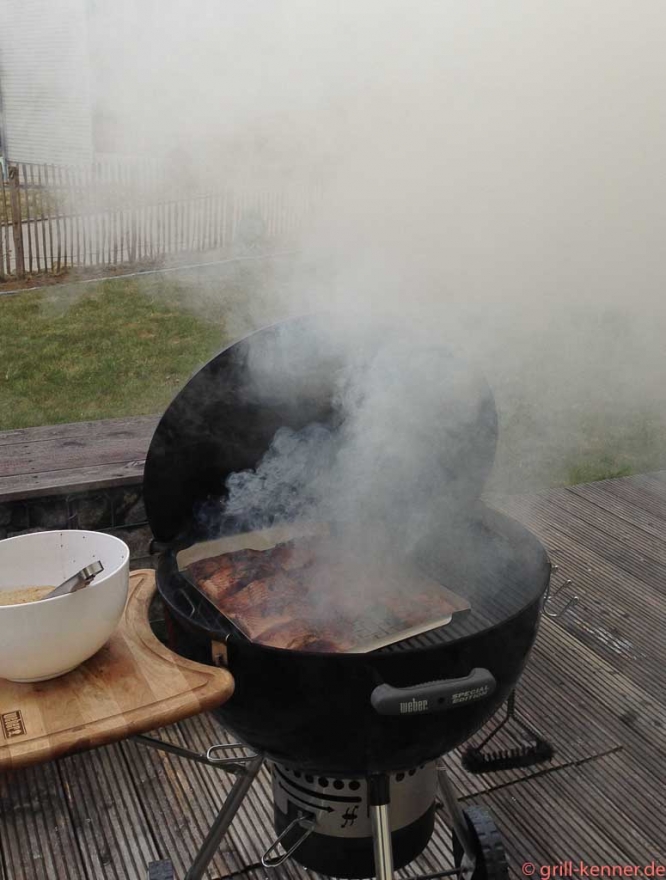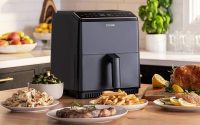Troubleshooting Grill Smoke: Causes and Solutions for a Cleaner BBQ Experience

When your grill smokes, the first question to consider is the type of grill you’re using. Each grill type can have a different cause for ‘smoking,’ but all smoking grills share one thing in common—they stink, and not just to you. Those residing in densely populated areas or intending to indulge in grilling on their balconies are likely to receive complaints from neighbors. Besides the neighborly hassle, the smoke produced while grilling can also compromise the quality of the meat. Often, smoke occurs when meat juices and fat drip onto the embers, generating carcinogenic substances that settle on the grilled food. Other factors can also contribute to your grill smoking. The easiest solution might be to switch to a gas or electric grill. However, for ardent charcoal grillers, this might not be an alternative. But let’s be clear: grilling on a charcoal grill without any smoke is unlikely to happen.
For Smoking Charcoal Grills:
Various reasons can cause a charcoal grill to smoke. It might be due to the charcoal quality, igniters, or old grease or meat residues not properly removed from previous grilling sessions. Usually, it’s the improper choice of igniters or charcoal that leads to smoke. Hence, your focus should be primarily on these aspects when addressing the smoking issue. Generally, smoke is attributed to poor combustion.
Instead of the cheap ‘Aldi, Lidl and Co.’ igniters, there are alternatives that produce much less smoke. Personally, I usually opt for wax-soaked wood shavings or threads. These biological igniters are cost-effective, burning slowly over a reasonable duration.
Similar considerations apply to the choice of charcoal. Spending a few extra euros on charcoal can significantly reduce smoking issues. Charcoal quality varies widely, affecting burn duration, glowing behavior, and, of course, smoke production. Our recommended charcoal burns slowly and consistently. Ideal wood types for charcoal include beech or bamboo.
Tip: Ensure charcoal briquettes are stored in a dry, sheltered place. Exposure to moisture leads to increased smoking during grilling.
Which Igniters to Use?
Paraffin cubes and paraffin-based liquid igniters aren’t recommended—they produce heavy soot and often have an unpleasant odor. Eco-friendly igniters like wood-wax cubes or liquid bio-igniters are much better for lighting. They burn almost smokeless and odorless. Particularly recommended for smoke-free ignition are electric grill starters like the Looftlighter, operating solely on hot air without an open flame. It ignites charcoal within a minute, reducing smoke generation. Combining these with the recommended charcoal briquettes should significantly improve the ‘my grill smokes’ problem.
What Charcoal Briquettes to Use?
Charcoal is to grilling what scissors are to a hairdresser! It’s not about quantity but quality. Premium charcoal is often made from beechwood, while briquettes are usually made from lignite, not wood. Less than five percent of charcoal is produced domestically. Check the packaging for labels; the FSC seal ensures the fuel comes from sustainable forestry.
The carbon content in charcoal is crucial for grill combustion. Higher carbon content means faster burning and higher temperatures.
Now, our favorite charcoal options—after trying numerous brands. Our top pick is Profagus charcoal, 100% beechwood with certifications like DIN Plus, PEFC, and FSC for sustainable forest management. It’s free from tropical wood, adhesives, and other contaminants.
This charcoal has impressed us not just in health and environmental aspects but also in ignition time and heat generation. It ignites quickly, maintains consistent heat, has a pleasant smell, and produces minimal smoke.
For Smoking Gas Grills:
Many switched to a gas grill to avoid upsetting neighbors with charcoal grilling smoke. Gas grills produce minimal smoke. If your gas grill still smokes, you’re likely doing something wrong. Often, dripping fat and meat juices on burner valves cause the issue. Keep the burners clean and protect them from food fluids using grease trays or collectors. These trays direct fluids away, preventing them from reaching the burners.
Removing Dirt:
After grilling, always clean the grill thoroughly. Old dirt can cause the grill to smoke again during the next use. For cleaning, we avoid using chemicals. Simply heat the gas grill, run it at maximum for about three minutes, then clean the grill grate with a grill brush.
Other Precautions:
Ensure the grill stands on a firm, level surface. If it’s uneven, fluids won’t drain properly into the designated containers, leading to potential spills onto the burners.
About the Smoker:
If it didn’t smoke, the smoker would be broken! 😆



